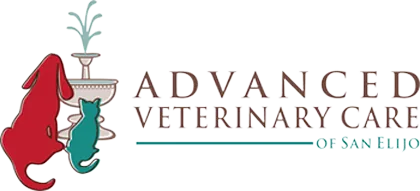November is national veterinary diabetes month. Veterinarians are increasingly diagnosing overweight pets with diabetes. Diabetes is more common in older pets, but can also occur in younger or pregnant pets. The disease is easily managed if it is detected early and controlled with the help of a veterinarian. The good news for pets and their owners is that with proper monitoring, treatment, diet, and exercise, diabetic pets can lead long and happy lives.
Diabetes, or diabetes mellitus, occurs when the body cannot process glucose (sugar) normally. Glucose is the main source of energy for the body’s cells. Glucose levels are primarily controlled by a hormone called insulin, made by the pancreas. In diabetics, regardless of the source or amount of sugar in the blood, there is not enough glucose transported into the body’s cells. As a result, there is not enough energy for the cells to function normally and the tissues become starved for energy. This metabolic starvation causes the body to breakdown fat and muscle tissue, which is then converted to sugar by the liver.
Similar to humans, overweight cats are at tremendous risk for developing diabetes and high blood sugar, requiring twice-daily insulin injections. Obese dogs are more prone to a condition known as insulin resistance, a state in which they have dangerously high insulin and blood sugar levels. Diabetes and insulin resistance have been shown to reduce a pet’s life expectancy and require constant medication and treatment. Obesity is the most significant risk factor for the development of diabetes.
Noticing the early signs of diabetes is the most important step in taking care of your pet. If you see any of the following signs, your pet should be examined by an AVC veterinarian.
- Excessive thirst/drinking and increased urination
- Weight loss, even with increased appetite
- Decreased appetite
- Cloudy eyes (especially in dogs)
- Chronic or recurring infections (including skin infections and urinary infections)
The earlier the diagnosis, the better chance your pet will have for a long and healthy life. Once the diagnosis is confirmed, insulin will be prescribed for your pet. Insulin cannot be given orally, it must be given by injection under the skin. An AVC veterinarian or veterinary technician will teach you how to give the insulin injections, which involve a very small needle and are generally well tolerated by pets. Your pet’s treatment may need to be periodically adjusted, based on monitoring results. Dietary recommendations are an important part of treatment. Successful treatment of diabetes requires regular examinations, blood and urine tests, and monitoring your pet’s weight, appetite, drinking, and urination. With proper veterinary care, diet, and exercise, diabetes is easily controlled in dogs. In cats, with proper treatment, diabetes may even be reversed and the need for insulin shots eliminated.
If you suspect your pet may have diabetes or other obesity related health issues, bring them to an AVC veterinarian immediately. If you have any questions regarding obesity or diabetes in pets, please do not hesitate to contact one of the doctors or staff at AVC. Remember that at AVC, our first line of defense is always prevention.
